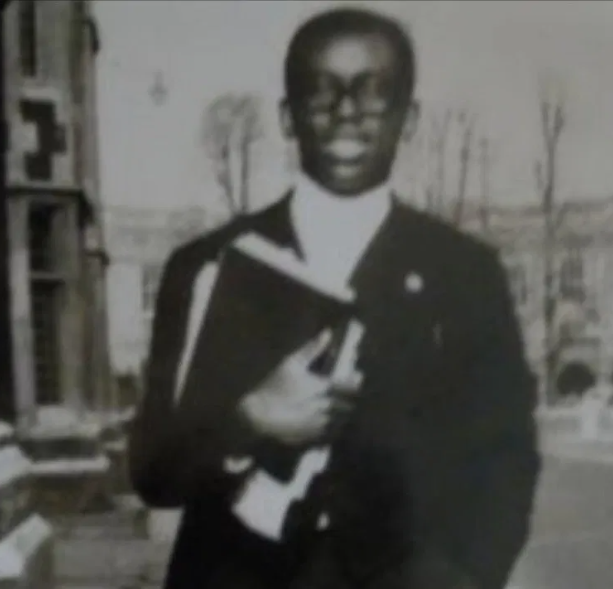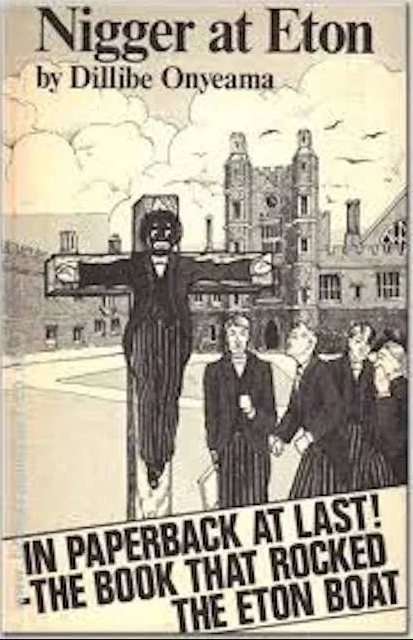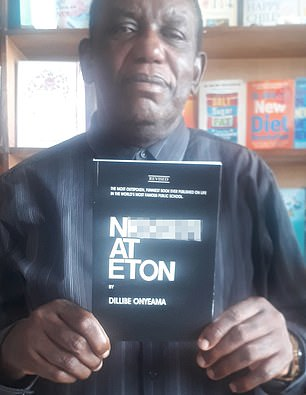Eton College Apologizes To Nigerian Ex-Student Onyeama Over Racism Experienced Years Ago

Amid international Black Lives Matter protest, Eton College has apologised to the first black student to complete his studies at the school, Dillibe Onyeama, years after he suffered racial abuse from his fellow students while schooling.
He was then banned from visiting the UK school, where he obtained his school-leaving certificate in 1969, after he wrote a book detailing his abuse experience.
The headmaster of Eton College, Simon Henderson has now apologized to Onyeama, saying he is ‘appalled’ by the racial cruelty he experienced to complete his studies at the prestigious British public school.
This comes as educational institutions and other companies have come under increased pressure to decolonise the curriculum, tackle racism and boost diversity on campus, following weeks of international Black Lives Matter protests sparked by the death of George Floyd.
Read Also: Crowds Protest Outside White House Against George Floyd’s Killing
Henderson made the apology after the BBC contacted the school to seek a response to a feature it published by journalist Adaobi Tricia Nwaubani about Onyeama‘s experiences and his thoughts on Black Lives Matter (BLM).
Onyeama was ridiculed by students because of his race during his stay in the school.
Boys from the school accused him of being riddled with maggots and asked him: ‘Does your mother wear a bone in her nose?’
When Onyeama performed poorly in academics or excelled in sports, the students attributed it to his race.
After four years of bullying, Onyeama left the prestigious private school in Berkshire with seven O-level passes but students refused to believe he was capable of it and accused him of cheating in his exams.
According to his book titled ‘Nigger at Eton’ where he wrote about his experience in the school, he said he was asked;
Tell me Onyeama, how did you do it? You cheated, didn’t you?

In his book, Onyeama, the son of a Nigerian magistrate who studied at Oxford University, journaled how he was daily bullied during his four years at the school.
Henderson speaking to BBC said;
We have made significant strides since Onyeama was at Eton but – as millions of people around the world rightly raise their voices in protest against racial discrimination and inequality – we have to have the institutional and personal humility to acknowledge that we still have more to do.
The headmaster said he would invite Onyeama to meet him in order to apologise in person and ‘to make it clear that he will always be welcome at Eton’.
Henderson added;
We must all speak out and commit to doing better – permanently – and I am determined that we seize this moment as a catalyst for real and sustained change for the better.
Reacting to the new development, Onyeama told the BBC that the apology was not necessary and did not change his view of Eton College, which on a whole was a positive view.
He said the book, published when he was 21, was an important way to reveal the systemic racism at Eton, saying “far as the school saw it, I was indicting them as a racist institution.”
The writer added;
People come to Africa and write all sorts of indicting and shaming experiences and publish it in books and nobody says anything.
He however stated that;
The apology compels the recognition that prejudice on the grounds of colour or race dehumanises its victims in a way that ordinary forms of prejudice do not.
Onyeama was asked questions like ‘Why are you black?’, ‘How many maggots are there in your hair?’ and ‘Does your mother wear a bone in her nose?’
After leaving the school, he detailed these experiences in a memoir and in 1972 he received an official letter informing him that he was banned from visiting Eton College.
Eton College has a reputation for educating some of the highest ranking members of British society, including Prime Minister Boris Johnson, who is the 20th British prime minister to have attended the school, as well as Archbishop of Canterbury Justin Welby.


